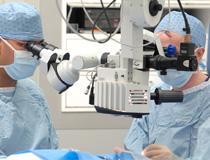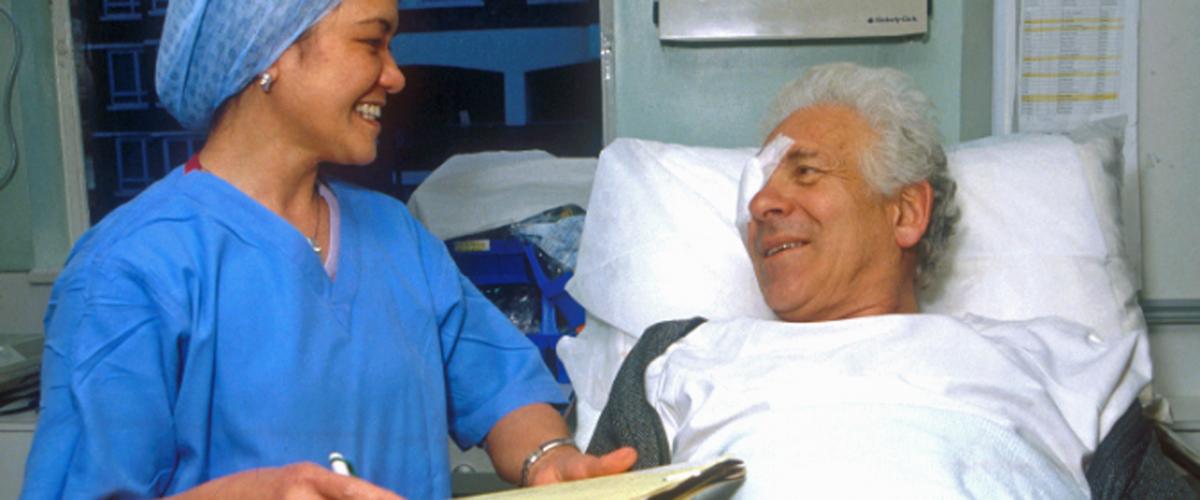Day of surgery
You should expect to be in hospital for between three and six hours if you are having your operation under local anaesthetic, or between five and eight hours if you having your operation under general anaesthetic, depending how quickly you recover from the anaesthetic.
What happens when you arrive
On arrival, you will be admitted to one of our single-sex day care wards, where a nurse will give you a full explanation of what will happen during your stay. Your surgeon will also come to see you to discuss and sign your consent for surgery form. Once surgery has started for the morning or afternoon, the surgeons are not usually able to leave the operating theatre. Therefore, please ensure that you arrive at the specified time so that there is time for your surgeon to talk to you before your operation.
The surgeons decide in which order to operate on patients, but sometimes this has to change during the course of the morning or afternoon. Please bear with us if we are unable to be exact about what time you will be going to theatre.
You will be offered refreshments in the morning and afternoon and a sandwich for either lunch or tea, depending on your operation and which sort of anaesthetic you are having.
During your operation

You will be taken to one of our operating theatres for your operation. If you are having a general anaesthetic, you will need to change into a theatre gown and might have to remove your dentures if you wear them. If you having a local anaesthetic, you remain in your own clothes. Most eye operations are relatively quick to perform and typically last between 30 and 90 minutes.
After your operation
After your operation, we like to keep you in for at least an hour to ensure there are no problems. Before you leave, a nurse or doctor might need to examine you, and your medications will need to be dispensed from the pharmacy. This sometimes takes longer than anticipated so we recommend you make alternative arrangements for work, childcare, and so on. We will try to keep you informed about any delays and how long these might last.
You will be given your drops, eye shield and follow-up appointment following your final discharge. Please note that some types of surgery require patients to return the following morning for review.
You may go home by public transport, but it is essential that you have an adult escorting you home.
Please ask as many questions as you want about your care, treatment, what is happening during your stay or what happens once you go home. If you have any concerns or uncertainties, please ask to speak to the ward sister, the nurse in charge or the surgical matron during your visit.
Patient information leaflets
Adult leaflets
Anaesthesia explained (long leaflet)
Before your surgery - COVID-19 self-swabbing test and courier collection
Day of surgery GA or deep sedation (morning)
Day of surgery GA or deep sedation (afternoon)
Day of surgery local anaesthetic or light sedation
Day of surgery at City Road-local anaesthetic for minor procedures
Discharge leaflet - Mackellar Ward
Discharge leaflet - Sedgwick Ward
General anaesthetic (short leaflet)
Instructions for cleaning the eyelids after surgery
Local anaesthetic (short leaflet)
Children's leaflets
Botulinum toxin treatment for squint in children
Cataract surgery: information for teens and parents
Dacryocystorhinostomy (DCR) post-operative information: for parents
Glaucoma surgery:teens/parents
Surgery for squint (strabismus): information for parents
Your child’s discharge from hospital
Your discharge information-for teens/parents
Your child's general anaesthetic






